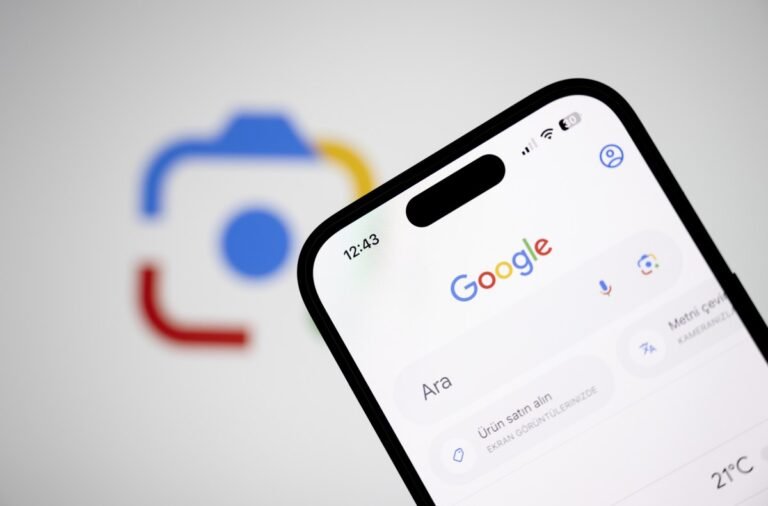
In addition to a new gesture-powered search feature for Android devices, Google today also introduced an AI-powered addition to its visual search capabilities in Google Lens.
However, Google clarified that while the Lens multisearch feature is offering generative AI insights, it’s not the same product as Google’s experimental genAI search SGE (Search Generative Experience), which remains opt-in only.
The AI-powered overviews for multisearch in Lens are launching for everyone in the U.S. in English, starting today.
Google notes that its genAI products — like its Google Search Generative Experience, for example, will cite their sources, to allow users to fact-check its answers.
The AI overviews for multisearch in Lens arrive today, while the gesture-based Circle to Search arrives on Jan. 31.

Alongside Samsung’s launch event today, Google announced a new way to search on Android phones dubbed “Circle to Search.” The feature will allow users to search from anywhere on their phone by using gestures like circling, highlighting, scribbling, or tapping.
The search results users will see will differ based on their query and the Google Labs products they opt into.
For a simple text search, you may see traditional search results while a query that combines an image and text — or “multisearch” as Google calls it — uses generative AI.
The feature was one of several Google AI announcements across Gemini, Google Messages, and Android Auto announced at today’s event.
Over time, more Android smartphones will support the feature, Google says.

A slew of consumer tech and companies focused on consumer packaged goods (CPG) have gobbled up venture capital in the past year.
Keychain, Harmonya, Highlight, Ramani, SupplyPike, Vividly and Turing Labs, just to name a few, captured investor attention for their technologies.
That’s because consumers’ tastes constantly change, grocery shelf space is finite and e-commerce takes finesse to cut through the noise.
But why are investors so interested in consumer tech and CPG as an opportunity now?
Oreo is going to need to know whether Oreo A or Oreo B tastes better, and that’s not something that generative AI can spit out.

Google is removing 17 “underutilized” features in Google Assistant to focus on “quality and reliability,” the company announced on Thursday.
The news comes as Google is laying off hundreds of employees in its Google Assistant, hardware and other divisions.
Setting or using media alarms, music alarms, or radio alarms on Google Assistant enabled devices.
You can use Google Assistant to search for recipes across the web and YouTube.
Using App Launcher in Google Assistant driving mode on Google Maps to read and send messages, make calls, and control media.

Brave announced today that it’s adding its newly-built CodeLLM to its search engine to deliver results for programming queries.
If Brave Search is your default search engine then all you need to do to access CodeLLM is start a search in your browser’s address bar.
If Brave Search isn’t your default search engine, then you need to head to search.brave.com to conduct your search.
Brave Search, which launched two year ago, has grown to serve an average of 25 million queries per day.
The company says Brave Search is the default search engine for many of Brave’s over 60 million users.

A startup called Diem wants to tackle the problem of “search engine gender bias,” where results can produce default male information, making many women feel unsatisfied by the answers they receive to taboo or personal questions online.
Diem also recently partnered with verified content providers so users can get information from trusted sources.
The first four companies are experts in the reproductive health space, including hormone health startup Aavia, sexual telehealth clinic Hey Jane, vaginal health startup Evvy, and female health brand Stix.
In the future, users will be able to nominate community members who already have a Diem account.
Six spaces are available, run by community members and inspired by popular posts on the platform.

Most notably, Walmart is launching a new generative AI search feature on iOS that will allow customers to search for products by use cases, instead of by product or brand names.
These enhanced search results will span categories, rivaling Google’s SGE (Search Generative Experience), which can recommend products and show various factors to consider, along with reviews, prices, images, and more.
At the time, Walmart teased that a generative AI-powered search feature was also in the works.
In another area, Walmart’s generative AI tool for store associates, My Assistant, will be expanded to 11 countries outside the U.S. in 2024, where it will work in employees’ native languages.
Outside of AI, Walmart is looking to other new technology for faster deliveries.

Multiple Threads users on the iOS app reported earlier today that they are seeing a new “Latest” option to sort search results on the new social network.
However, the company told TechCrunch that the feature was just an internal prototype and it was rolled out by mistake.
Threads first started testing the ability to search for posts in Australia and New Zealand in August 2023.
In September last year, Meta rolled out the search to almost all English and Spanish-speaking countries where the social network was available.
In December, the company expanded the search to all languages along with the launch in the EU later in the month.

As search engine incumbents — namely Google — amp up their platforms with gen AI tech, startups are looking to reinvent AI-powered search from the ground up.
Srinivas, Perplexity’s CEO, previously worked at OpenAI, where he researched language and gen AI models along the lines of Stable Diffusion and DALL-E 3.
This reporter is skeptical about the longevity of gen AI search tools for a number of reasons, not least of which AI models are costly to run.
Concerns around misuse and misinformation inevitably crop up around gen AI search tools like Perplexity, as well — as they well should.
Some plaintiffs, like The New York Times, have argued gen AI search experiences siphon off publishers’ content, readers and ad revenue through anticompetitive means.

Instead, it’s settling into a place where its use is already commonplace, even for purposes for which it’s frankly ill-suited.
The doomerism vs. e/acc debate continues apace, with all the grounded, fact-based arguments on either side that you can expect from the famously down-to-earth Silicon Valley elites.
Witness everything always, forever, but if you’re looking for specifics, self-driving is a very handy recent one, as is VR and the metaverse.
Utopian vs. dystopian debates in tech always do what they’re actually intended to do, which is distract from having real conversations about the real, current-day impact of technology as it’s actually deployed and used.
Use of generative AI, according to most recent studies, is fairly prevalent and growing, especially among younger users.













